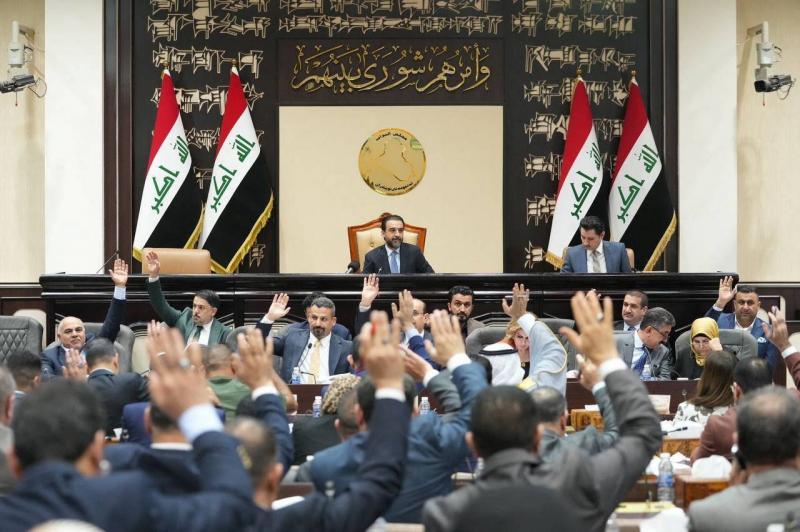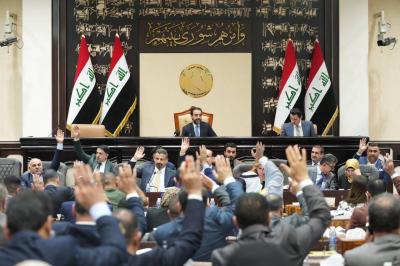The Iraqi parliament approved the 2023 budget today, totaling 198.9 trillion dinars ($153 billion), which includes record spending on an increasing government wage bill and development projects aimed at improving services and rebuilding infrastructure destroyed by neglect and war. According to lawmakers and a budget document, the budget deficit is estimated at approximately 64.36 trillion Iraqi dinars, a record-high level more than double the last recorded deficit in 2021.
Lawmakers stated that the budget is based on an oil price of $70 per barrel and forecasts the export of 3.5 million barrels of oil per day, including 400,000 barrels per day from the Kurdistan region. The budget sets the exchange rate for oil revenue in US dollars at 1300 dinars per dollar. This will remain in effect until 2025 but will be subject to adjustments and includes the oil price used by Iraq, which is almost entirely reliant on oil revenues.
The budget also adds more than half a million new jobs to the public sector, contradicting recommendations from many observers who argue that Iraq should tighten fiscal policy. Mohammed Nuri, a member of the parliamentary finance committee, told Reuters before the session that over one million new workers were added, including contractors, daily workers, and full-time employees. Ahmad Al-Taqaji, a visiting fellow at the Middle East Center at the London School of Economics, estimated the number of new staff at about 600,000, which he said would raise the total cost of public wages and pensions to over $58 billion (76 trillion dinars).
He stated, "The more you increase this type of spending, the more you increase your vulnerabilities. Oil prices need to rise increasingly just to sustain spending... and it will lead to more and more borrowing." The International Monetary Fund noted in a memo dated May 31 that increasing public sector wage bills would contribute to rising deficits and financial pressures unless there were significant increases in oil prices.
To achieve fiscal balance, the fund indicated that Iraq requested an oil price of $96 per barrel, while the average price was $71.3 per barrel in May. The IMF said, "There is a need for stricter fiscal policy to enhance resilience and reduce government dependence on oil revenues while protecting important social spending needs."
Iraq's budgets are supposed to be approved before the start of the year they cover but are often delayed or not passed at all due to instability and political disagreements. The budget takes steps to address long-standing disputes between Iraq and the autonomous Kurdistan region, as oil revenues are scheduled to be deposited into an account overseen by the Central Bank of Iraq. Previously, Baghdad had no say in Kurdistan's spending of oil revenues, as the region unilaterally exported crude oil via Turkey despite Baghdad's objections. However, Kurdish officials were forced to negotiate with Baghdad after Turkey halted crude exports in April when an international arbitration ruling deemed them illegal.
Under an agreement reached between Baghdad and Erbil in April, the state oil marketing company (SOMO) will have the authority to market and export crude oil produced by fields controlled by the Kurdistan region. However, oil flows have not resumed despite Baghdad's request from Ankara on May 11.




